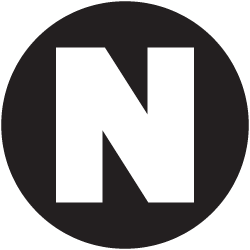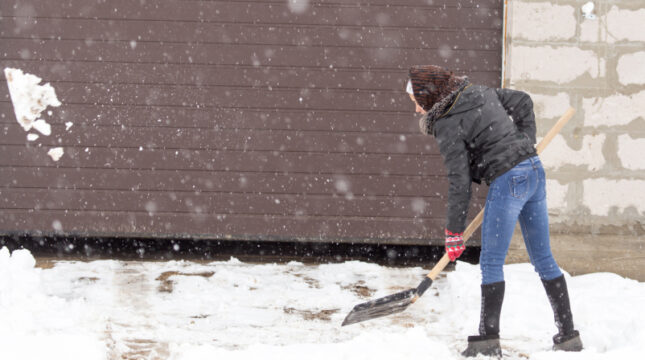NEXT Insurance survey of 1000+ small business owners finds them working longer hours, earning less and paying more for labor and supplies
PALO ALTO, Calif., April 13, 2022 /PRNewswire/ -- U.S. small business owners are feeling frustrated and stressed about inflation and the general state of the economy, with many forced to raise prices, work longer hours, and pay more for labor, according to a new survey by NEXT Insurance, a leading digital insurtech company transforming small business insurance.
As the consumer price index surged to nearly 8% in February—a 40-year high— it's the smallest businesses who are bearing the brunt of the turmoil: while nearly 40% of small businesses surveyed say they're feeling frustrated or stressed by the state of America's workforce, businesses with 20 or more employees are feeling significantly more optimistic (43%) than companies with 9 employees or less (22%), the survey found.
NEXT, which provides customized insurance policies to more than 300,000 small business customers across the U.S., revealed these findings today after surveying 1000 small business owners across the U.S. with at least one employee.
The findings revealed a grim outlook for the future, with only 29% of respondents saying they felt optimistic about an economic recovery in the next 12 months. About 35% of small business owners said they were considering shutting down their business, with 8% of those saying they've "thought about it a lot." Other findings from the survey included:
- After surviving more than two years of pandemic restrictions, small business owners are burning out. In order to keep their business afloat, 46% of owners are working more hours, with 33% reporting performing duties that were typically handled by someone else. Over a quarter (29%) of owners have decreased their own salaries, and 35% increased their prices. Employee turnover also is a problem, businesses say:
- Over half of respondents say they're experiencing about the same rate of employee turnover (55%) and almost a third say it's higher (30%).
- Half of all businesses have experienced employee ghosting, with 28% saying they experience it every few months or more.
- Small businesses are paying more for labor today, with the smallest businesses seeing the greatest percentage increase in wages. Overall, small businesses are paying about $24 per hour, nearly $2 more than two years ago, when the average rate was $22 per hour.
- Employees at the bottom of the labor market are earning more: During the pandemic, 19% of small businesses were paying employees $10 per hour or less; today only 8% of small businesses reported paying less than $10 per hour.
- Businesses with less than five employees almost doubled the percentage of employees earning more than $21 per hour (15% vs. 27%), while small businesses with 20 or more employees also reported significantly increasing the percentage of employees earning more than $21 (34% to 44%) compared to pre-pandemic wages.
- Businesses in rural areas report less worker satisfaction than those in more populated areas. Rural business owners say workers in their industry are more uncertain, less appreciated, less motivated, less flexible, and less content than those in urban settings.
- Businesses say that inflation and supply chain delays are having the greatest impact, with 91% reporting an increase in prices. This is especially true for businesses with less than five employees.
- The biggest impact to businesses is increased cost of materials: 39% of those surveyed say this has had a significant impact in the last 6 months.
- Although the Western region has been hit with increased prices (85%) they report significantly less than the South and Northeast. The West also reports increased cost of materials (79%) which is significantly lower than the South.
- Tax season changes pose new stressors for small business owners. 65% of respondents felt their stress levels this tax season were about the same as past years, but nearly a quarter (22%) are feeling more stressed.
- 54% of small business owners surveyed expect to owe about the same as in previous years, while 23% expect to owe less and 23% expect to owe more.
- Half of all small business owners say they use cash apps, which are staring down new tax changes this year. 58% of businesses in urban areas are likely to use these apps, compared to 46% of suburban small businesses or 43% of rural ones. The big bottom line for these apps to keep an eye on? 23% of small businesses surveyed say they're "way less likely" to use cash apps than they were before.
"This substantial inflation is rapidly becoming a crisis for U.S. small businesses, which operate on low-profit margins and have less flexibility than larger companies," said Suzanne DuFore, Director of Research at NEXT Insurance. "Small businesses are often the canary in the coalmine for our economy—if they're feeling the intense stress and pressure from these major societal trends that show no signs of slowing down, it's critical for us as consumers and leaders in financial services to be ready to help them out in any way we can."
To read more about our survey findings, visit our blog. You can also request more details on the data, as well as accompanying charts, by reaching out to nextinsurance@inkhouse.com.
About NEXT Insurance:
NEXT Insurance is transforming small business insurance with simple, digital and affordable coverage tailored to the self-employed. Trusted by over 300K business owners, NEXT offers policies that are easy to buy in 10 minutes or less and provides 24/7 access to Live Certificates of Insurance, Additional Insured, and more, with no extra fees. Revolutionizing a historically complicated insurance industry, NEXT utilizes AI and machine learning to simplify the purchasing process and provide more affordable coverage. Founded in 2016, the company is headquartered in Palo Alto, has received a total of $881 million in venture capital funding, and has been recognized by Forbes Fintech 50, Inc.'s Best-Led Companies, and Forbes Best StartUp Employers. For more information visit NEXTInsurance.com. Stay up to date on the latest with NEXT on Twitter, LinkedIn, Facebook and our blog.
Kerry Ogata
Head of Corporate Communications
NEXT Insurance
kerry.ogata@nextinsurance.com
301-717-4224





